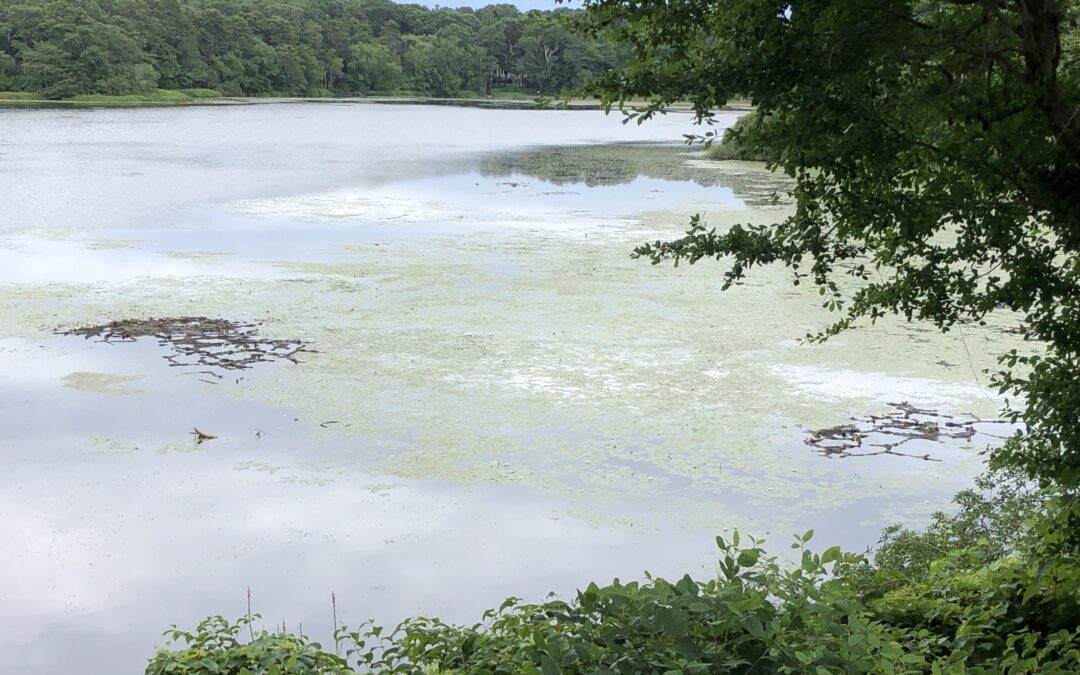Cedar Lake
By Joyce Bock
I have lived on Cedar Lake in North Falmouth for 41 years. Little did I realize in 1980 how much a body of water becomes part of one’s life. Looking out the window every day is a new adventure. There is always something to look at. It might be the slow, subtle changes of the seasons, or the territorial fights of swans. Spring brings the return of osprey who dive into the water in search of fish. Late spring should bring the raucous sound of bullfrogs, although the noise is greatly diminished these days. Summer should bring…
I stopped writing here. I could see all the negative thoughts coming and decided no one wanted to read all that. Excess vegetation was clogging the entire lake. The sound of bullfrogs was essentially gone. Fewer osprey were searching for fish because they couldn’t see them through the dense growth. You could barely push a paddle through the water. The lake tested positive for potentially toxic cyanobacteria blooms. And yucky stuff, most likely algae, was everywhere. Things looked grim indeed.
In March 2021, Friends of Cedar Lake was incorporated. We partnered with APCC and did the first testing of the water. Very low dissolved oxygen at the bottom of the lake appeared to be the largest red flag. In July 2022, several people attended a workshop sponsored by Falmouth Water Stewards and presented by Massachusetts Department of Conservation and Recreation. There we discovered that fanwort is 90 percent of our problem. Fanwort is an invasive, non-native plant that spreads everywhere. It can arrive in a body of water via a boat bringing it from another pond, or via a duck, or, very likely, from someone dumping their aquarium into a pond. Fanwort is sold as decoration for aquariums. Fortunately, we were advised that an herbicide exists that treats just the fanwort with no adverse effects on wildlife.
I have now lived on Cedar Lake for 43 years. Things are looking up. Friends of Cedar Lake has raised half of the $40,000 cost of remediation and is actively seeking grant money to make up the difference. We are planning to apply the herbicide in July 2023 and follow up applications will be needed to maintain the improvement. We are so very hopeful this will encourage the wildlife to stay and improve recreational opportunities to enjoy this precious habitat.
For more ideas about how to save your pond, go to State of the Waters Action Plan.
And remember, always check with your local conservation office before undertaking any projects around a pond so that you don’t run afoul of local and state wetlands protection regulations.
Pond Stories are a collection of writings and other media from Cape Codders and visitors who love the almost 1,000 local ponds that dot the Cape. We hope this collection of stories awakens your inner environmentalist to think deeper about our human impacts to these unique bodies of water.
Send us your favorite pond photo, story, poem, video, artwork–we want to share with everyone why the Cape’s ponds and lakes are so special! Email your pond connection to [email protected]


